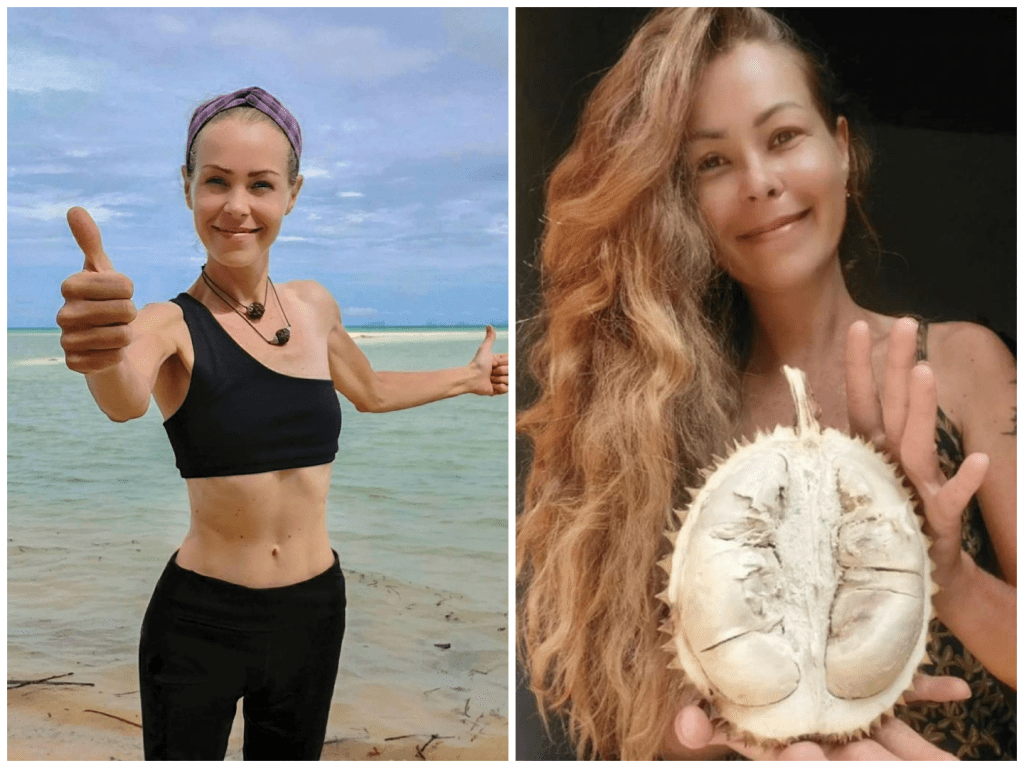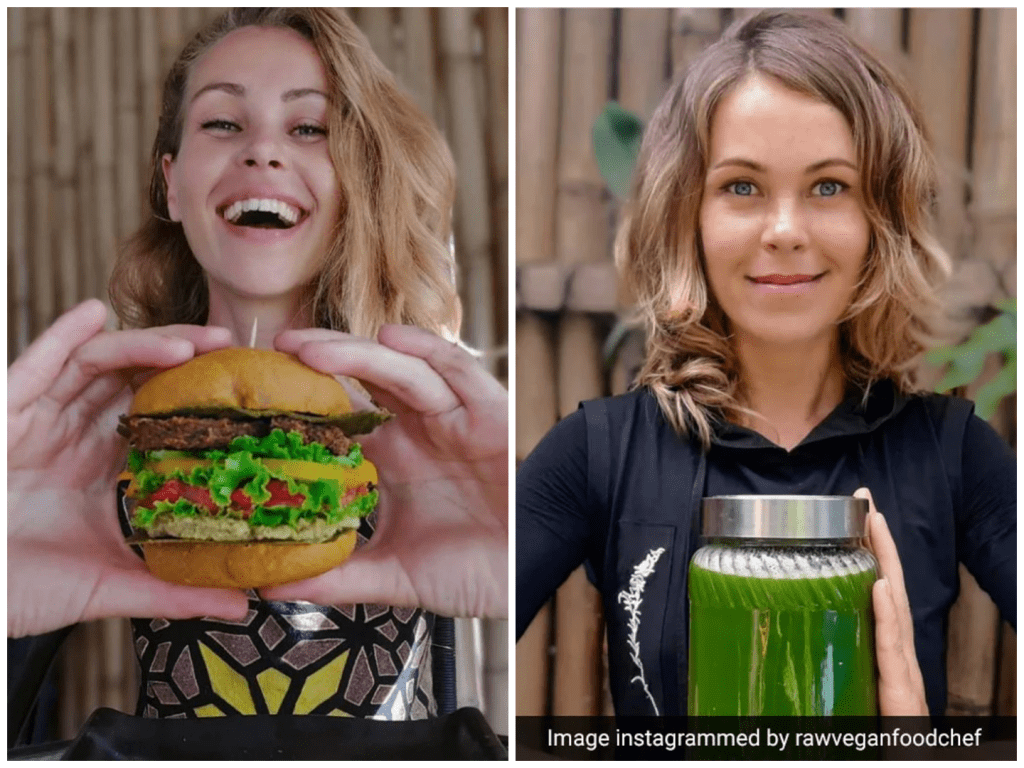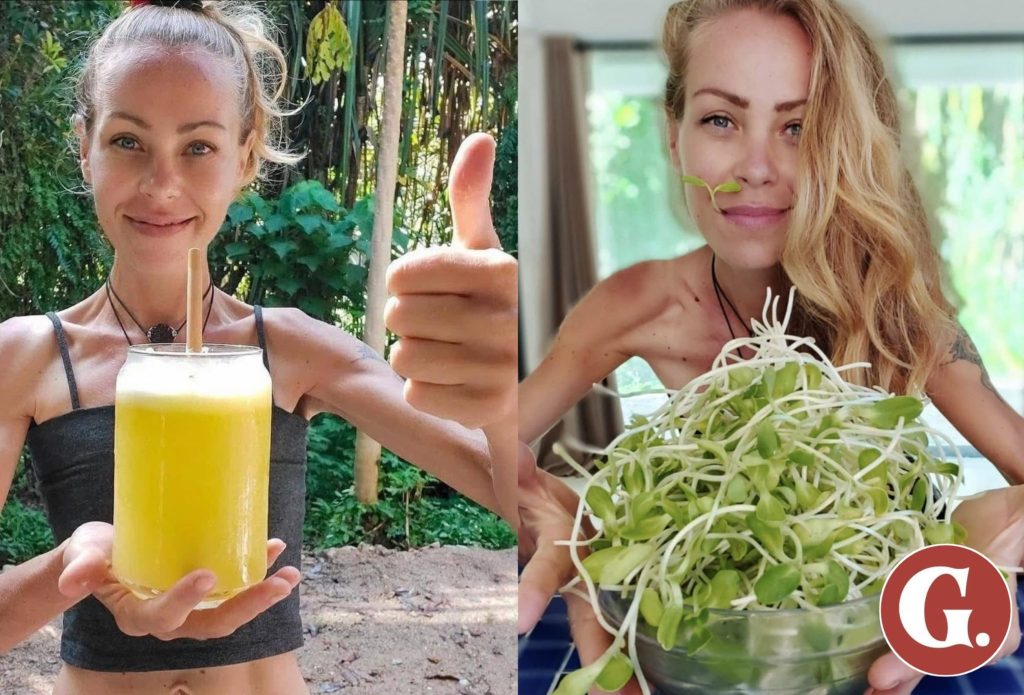Vegan Influencer Zhanna D’Art Reportedly Dies at 39 After Years on Extreme Raw Fruit Diet — A Wake-Up Call on Dangerous Fad Nutrition
I remember scrolling through Instagram one evening when I stumbled on heartbreaking headlines: Zhanna D’Art, the 39‑year‑old Russian raw vegan influencer, had died. It felt surreal. People who followed her felt inspired by her posts—fruit smoothies, exotic durian, glowing skin. It seemed aspirational. But behind the filtered photos lay a much darker reality.

Her real name was Zhanna Samsonova, and she had championed an extreme raw vegan lifestyle for nearly a decade. Reports say she subsisted almost entirely on jackfruit, durian, fruit smoothies, juices, and sunflower seed sprouts. Some friends and media outlets reported she hadn’t drunk plain water for years. By the time she died on July 21, 2023, in Southeast Asia—while touring in Malaysia—she was visibly frail and emaciated. Her mother mentioned a “cholera‑like infection,” but an infection supercharged by severe malnutrition seemed a likely cause.
Friends shared heartbreaking details. One recalled being terrified to find her lifeless each morning, convinced she was melting away before their eyes. Another described her legs swelling and oozing lymph, her body a shell of the woman who once appeared vibrant in videos. Attempts to urge medical care were rebuffed—she refused help until it was too late.
Experts warn that raw vegan diets devoid of protein, healthy fats, vitamin B12, iron, calcium, and vitamin D can lead to dangerous deficiencies. Nutritionists are clear that while plant-based diets can support health, they must be planned carefully, often with supplementation—especially when excluding cooked foods entirely. What made Zhanna’s case extreme was not her veganism per se, but her near-total elimination of essential food groups, leading to exhaustion, immune collapse, and ultimately, death.
Her story has become a cautionary tale in nutrition circles. Publications like India Express remind us that raw veganism lacks many vital elements necessary for long‑term health: anemia, heart disease, nervous system damage—even infertility—can result from chronic deficiencies of B12, iron, and fats. The Telegraph and Hindustan Times describe how she extolled the virtues of fasting, salt‑free diets, and raw foods—yet, in reality, the lack of balanced nutrition left her body unable to sustain itself.

Even within the vegan community, many emphasized the difference between mainstream plant‑based diets and extreme “fruitarian” or raw‑only regimes. On Reddit, users pointed out that Zhanna seemed to suffer from an eating disorder rather than embracing standard healthy veganism. One comment noted, “She wasn’t even on complete plant‑based diet. She was ‘raw fruitarian,’ which is very similar to carnivore diet.”
Reading her followers’ tributes, it’s clear she believed deeply in the purity of her path. She claimed her strict regimen had transformed her body and mind. Fans admired her for promoting health, simplicity, and rebellion against processed food. Unfortunately, that idealism masked a lethal imbalance.
The day Zhanna passed away offers a vital lesson. Extreme diets—even when presented as empowering or wellness based—carry real risk when they exclude entire essential categories of nutrients. Her family and friends said doctors were repeatedly discouraged. Friends begged her to seek treatment; a neighbor lived above her and feared every morning discovering tragedy.
Yet buds of hope exist amid tragedy. Health experts emphasize that a balanced vegan diet with legumes, nuts, seeds, whole grains, fortified foods, and possibly supplements can be healthful and adequate. Even 39‑year‑old Zhanna’s path underscores the importance of medical supervision, diversity in food choices, and listening to one’s own body.
Her death reminds me that wellness culture must walk carefully between enthusiasm and science. It’s not about demonizing veganism, nor shaming diet choice—but about respecting the complexity of human biology. Nutrition is not ideological. It’s biochemical and deeply personal. Labels like “raw vegan” or “fruitarian” can sound freeing—but if applied without medical or nutritional wisdom, they can become dangerously rigid.
In the days following her passing, I found myself reflecting on the influence of social media—and how aspirational posts can obscure struggle. Zhanna’s final photos looked radiant. But photos don’t show fatigue, defiance, or refusal to accept help. Her last Instagram post celebrated durian season in Thailand. Looking back, I now see it as a farewell.
I’ve read several articles since then—NDTV, Telegraph, Sky News—and each notes how she was described as a “walking skeleton” by those who knew her. Her story is so extreme, yet it underscores something universal: bodies need balance. Ideals should not override biology.
What stays with me is the conflict between belief and biology. She validated her identity through transformation narratives. But her transformation became perilous.
If there’s anything to salvage from this tragedy, it’s that real health requires education—not extremism. Nutritionists remind us: even wellness influencers should pause when an approach isolates key nutrients. Science continues to affirm that plant-based living, balanced with protein, fats, vitamins, minerals, and enjoyment, can be sustainable. But rigid extremes often aren’t.
Friends say Zhanna was cheerful until the end, despite her failing body. That, perhaps, is the most heartbreaking. Her mind believed in her path until it gave out. May her story serve as both warning and invitation—to question extremes, to seek balance, and to respect the care our bodies require to truly thrive.


